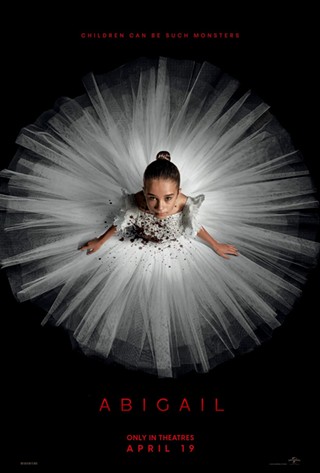OK, if that doesn't make any sense to you, then some of the subtext of Roman Coppola's CQ will probably be flying way under your radar. But if you're the kind of coolsumer whose video library is stocked with cult flicks from the sanguinary '60s, then CQ will be the movie you've been waiting for ever since the rumored Thunderbirds Versus Los Vampiros Lesbos project was shelved.
CQ stars Jeremy Davies (Spanking the Monkey, Saving Private Ryan) as Paul Ballard, a young film editor who's come to Paris to work on a Barbarella-like film called "CQ." While he's there, he's also making a navel-gazing documentary that simply focuses on himself and his intensely interesting life, wherein he does things like drink coffee and sit on the toilet.
Davies is amazing in this role, helped in large part by a character conception that is rarely seen. His Paul Ballard is extremely soft-spoken, and though he appears to worry and mourn and be excited, he never raises his voice or speaks in any but the calmest of tones. For those of us fed on a Hollywood action diet of overwrought drama, it's almost unnerving to see a leading man who isn't foaming at the mouth about how the internal affairs bureau can't handle the truth that they killed his partner but not on his watch.
Director Roman Coppola contrasts Davies performance with a more high-strung one from Gerard Depardieu, who plays Andrzej, the director who is fired from "CQ." Even more outlandish is Jason Schwartzman (Rushmore) as Felix de Marco, who's hired to replace the unbalanced Andrzej.
While all this works in and of itself, what makes it most fine to cinephiles are the references to '60s films and filmmakers. Davies, in filming his life, recreates scenes from the classic American mockumentary David Holzman's Diary. This is widely considered one of the great American experimental movies, and is more than worth renting (they had it at Casa Video last time I checked).
Meanwhile, Gerard Depardieu's Andrzej is a Roger Vadim clone who sleeps with his leading lady and thinks that his cheesy science fiction film will inspire the people to rise up against their ill-defined oppressors.
Jason Schwartzman does a spot-on euro-glam filmmaker, referencing Spanish sleaze-meister Jess Franco, who's probably best known for his "Vampiros Lesbos" movies and their accompanying psychedelic soundtracks.
In spite of all these industry references, CQ is different from most film-within-a-film films in that it has two films within it, making it part of that rare genre, the films-within-a-film film.
It's the smaller film, the one that Paul Ballard is making about his own life, that gives CQ its emotional weight. Just as in David Holzman's Diary, Paul Ballard's film increasingly alienates him from his girlfriend. His inability to show emotion for others is reflected in his intense attachment to himself as the only possible genuine subject for his art.
Meanwhile, he seems to feel no qualms about selling out in working on the vixen-in-space flick "CQ." He even agonizes over plot adjustments and dialogue changes, and seems to put more energy into giving a secret ray-gun some special powers than into making his own film in any way meaningful to others.
Which might be a problem for CQ as well: Its intense reliance on references and insider information could be alienating to audiences. To counteract this, Coppola spices his picture up with groovy sets and hot actresses. The eye-candy aspects are especially appealing, and Coppola does a great job recreating the feel of Barbarella's clothes and space ship. Angela Lindvall does a better-than-real full-body Jane Fonda impression as Valentine, the star of "CQ," and Elodie Bouchez has a languid hyper-eroticism as Ballard's girlfriend Marlene.
In spite of all this, CQ feels a little long, even at 91 minutes. Coppola's pacing is not yet perfect, though that's more than excusable for a first film. Watch for the cameos by L.M. Kit Carson and Sofia Coppola, the small bit by the under-utilized Billy Zane, and the always impeccable performance of Giancarlo Giannini as the Dino de Laurentis-esque producer. Or just watch to see something that's done a little differently, and that promises a great future for Roman Coppola.










